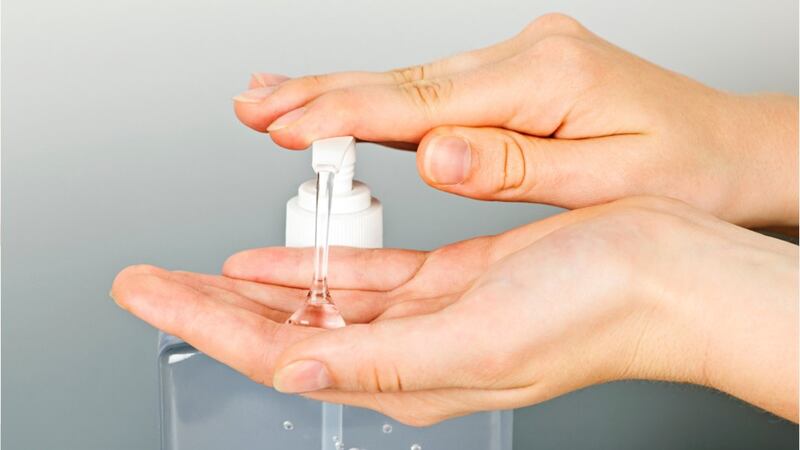It’s a touchy subject.
The outbreak and spread of the coronavirus have heightened germ awareness. And while no one is suggesting that people turn into germophobes -- fictional television character Adrian Monk and movie character Melvin Udall, played by Jack Nicholson in the 1997 movie “As Good As It Gets” come to mind -- some common sense should prevail.
When trying to avoid the coronavirus or even the flu, some motherly advice might be relevant: “Disinfect, so germs don’t collect.”
Coronavirus in Florida: Avoid touching these things - https://t.co/TwqTvTskBF pic.twitter.com/ypObgKOrPS
— South Florida Sun Sentinel (@SunSentinel) March 4, 2020
What are you touching? Should you be concerned? Of course, but don’t panic. Be prudent. Here’s a look at some things to put on your radar.
Money: “Dirty money” is not a myth. Money changes hands constantly. Have you ever seen a person trying to separate dollar bills by licking their fingers, putting saliva on their cash? Those germs get passed along as the bills make their way from customers to cash register, and then back again. Wash your hands after handling cash, the Sun-Sentinel reported.
Touch screens and ATMs: Stores like Walmart, Target, Home Depot and Lowe’s (to name a few) and even sandwich-ordering stations at WaWa have self-serve touch screens to pay for items or generate food orders. If an infected person sneezes and a droplet lands on a touch screen, a person who subsequently touches the screen could pick it up, The New York Times reported. If a screen looks dirty, avoiding it is easy. But even if a surface looks clean, a droplet or two can be cause for concern. The same theory applies to ATMs. According to the Centers for Disease Control and Prevention, a flu virus can survive on your hands for only three to five minutes. However, the germs could survive on touch screen/ATM surfaces for up to 48 hours. The CDC recommends using a hand sanitizer after using public touch screens.
Gas pump handles: The handles at self-serve gasoline stations can be touched by hundreds of people a day. As early as 2015, sharp entrepreneurs were trying to attract germ-obsessed customers. Antonio Lyon, of Sunrise, Florida, started a company that provided disposable gloves at the gas pump, the Sun-Sentinel reported. Tuesday in the Sunshine State, Mary Barzee Flores, of the Florida Department of Agriculture and Consumer Services’ consumer affairs division, held a news conference to address stopping the spread of the coronavirus, the Sun-Sentinel reported.
Shopping carts: Grocery stores have been providing antibacterial wipes next to the lines of shopping carts for some time, according to the Sun-Sentinel. A quick wipe-down is a good idea, since carts are handled by customers and employees all day.
Restaurants and buffets: Are they safe? For the most part, yes. If a sick person handles food or the restaurant has a buffet with high traffic volume, one cannot rule out the risks, the Times reported. Gary Whittaker, a professor of virology at Cornell University College of Veterinary Medicine, said heating or reheating food should kill the virus, the newspaper reported. Ashish K. Jha, director of the Harvard Global Health Institute, said the concern over food is minimal. “As a general rule, we haven’t seen that food is a mechanism for spreading,” Jha told the Times.
Don’t touch your face: A 2015 study showed that people touch their faces an of two dozen times an hour, and 36% of that touching involved the mouth, 31% involved the nose, 27% involved the eyes and 6% were a combination of all three regions. “It’s very hard to change, because you don’t even know you’re doing it,” William Sawyer, a family doctor in Sharonville, Ohio, and founder of Henry the Hand, an organization that promotes hand hygiene, told The Washington Post. “It’s habit, and habits are hard to change." Sawyer, who created the nonprofit organization during the 1990s, said not touching your face is one behavior “that would be better than any vaccine ever created." “Just stop this simple behavior,” Sawyer told the Post. "Stop picking, licking, biting, rubbing -- it’s the most effective way to prevent a pandemic.”
Wash your hands: Mom’s biggest piece of advice. Keeping your hands clean is a good way to ward off germs. Viral droplets do not pass through skin, the Times reported. So, keeping one’s hands clean before touching the face is a good way to prevent the spread of germs.
Cox Media Group








